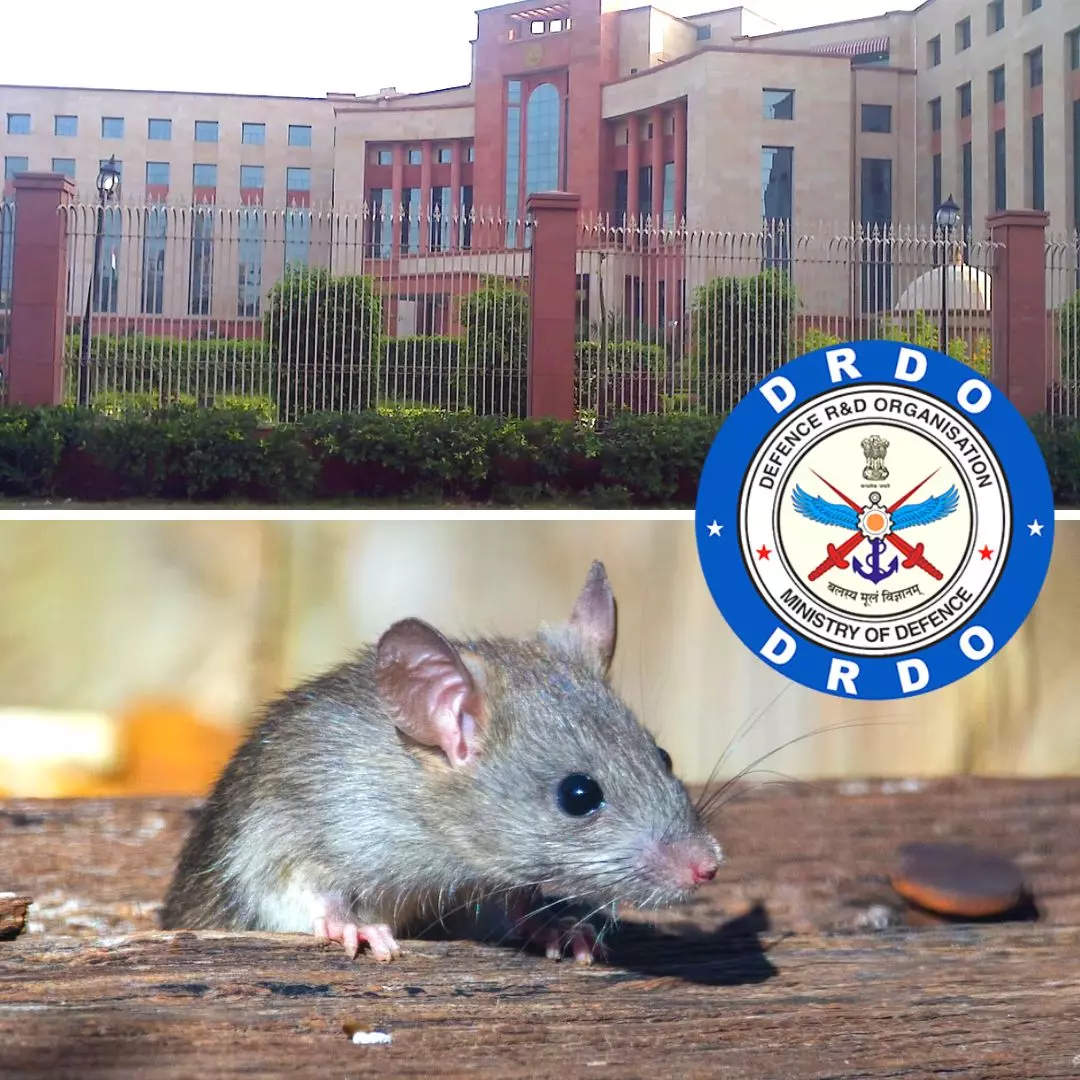DRDO Scientists Develop 'Rat Cyborgs' For Security Forces To Assist In Intelligence Surveillance & More
Writer: Hardik Bhardwaj
He is a student of SIMC, who is organized and able to meet deadlines in a fast-paced environment.
India, 11 Jan 2023 6:38 AM GMT
Editor : Shiva Chaudhary |
A post-graduate in Journalism and Mass Communication with relevant skills, specialising in content editing & writing. I believe in the precise dissemination of information based on facts to the public.
Creatives : Shiva Chaudhary
A post-graduate in Journalism and Mass Communication with relevant skills, specialising in content editing & writing. I believe in the precise dissemination of information based on facts to the public.
The development of these 'rat cyborgs' is part of the Defence Research and Development Organisation's ongoing effort to develop advanced technologies for intelligence gathering and surveillance operations.
The Young Scientist Laboratory in the premier R&D facility of the Defence Research and Development Organisation (DRDO) is devising 'rat cyborgs' to help security services with recovery operations and intelligence gathering.
According to P Shiva Prasad, director of the DRDO's Young Scientist Laboratory (DYSL-AT), a team of the organisation's scientists is currently developing a set of rat cyborgs with cameras on their heads and employ semi-invasive brain electrodes to be guided by electronic orders, reported Business Today.
Developing Such Technology For The First Time
During the World Science Congress session, Prasad said that India is taking part in developing this technology for the first time while some foreign nations already have it. The technology will help the armed forces in Intelligence Surveillance and Recovery (ISR) operations. He added that Phase 1 trials are underway in which the rat will be controlled through operator commands.
Prasad explained that Phase 2 would enable researchers to feed images into the camera installed on the helmet. He cited an example of the terrorist incident of September 11, 2001, where more than 200 hotel rooms had to be inspected.
Speaking of remote-controlled robots, he asserted that rats could perform complex tasks like climbing walls and passing through narrow holes, which humans generally struggle with. Due to their knowledge of its pleasure centres, scientists can also entice it for missions by offering food-based rewards.
Significant Step In Animal-Assisted Military Operations
The development of these 'rat cyborgs' is part of the DRDO's ongoing effort to develop advanced technologies for intelligence gathering and surveillance operations. The rats, known for their excellent sense of smell and ability to navigate through tight spaces, are being trained to detect and locate hidden explosive devices, landmines, and other objects of strategic importance.
The use of animals for military purposes is not new—however, the development of 'rat cyborgs' marks a significant step forward in animal-assisted military operations. The success of this technology will depend on the extent to which scientists can overcome the ethical and moral concerns raised about using animals in military operations.
Also Read: DRDO Successfully Tests Out Autonomous Aircraft's Maiden Take-Off
 All section
All section














